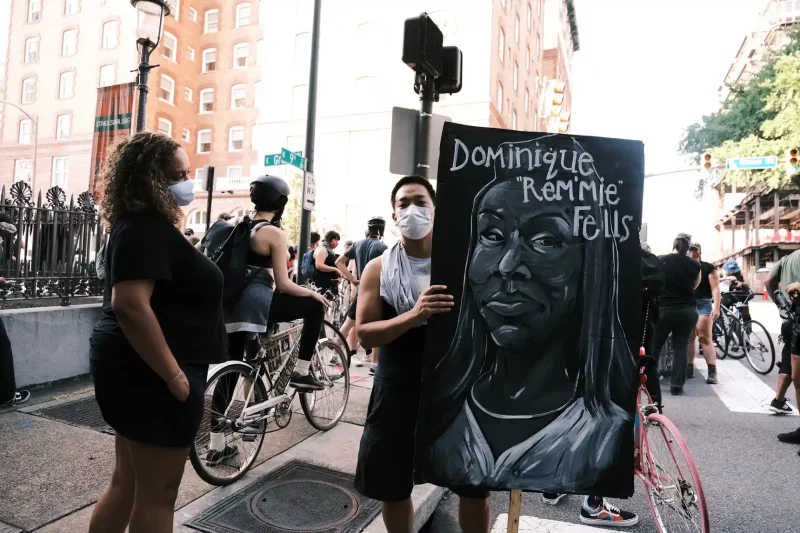‘An unspoken epidemic’: Homicide rate increase for Black women rivals that of Black men
Share
Explore Our Galleries
Breaking News!
Today's news and culture by Black and other reporters in the Black and mainstream media.
Ways to Support ABHM?
By Lois Beckett and Abené Clayton, The Guardian
Five Black women and girls were killed each day in 2020, most of them with guns. Gender violence must be at the center of the gun debate, advocates say

In 2020, a year of rising homicides amid a devastating pandemic in the US, the increase in the death rate for Black women rivaled that of Black men.
As homicides increased nearly 30% nationwide that year, the rate for Black women and girls rose 33%, a sharper increase than for every demographic except Black men, and more than double that of white women, according to a Guardian analysis of homicide data from the Centers for Disease Control and Prevention.
Killings of Black women and girls increased across age groups, from school-age children to senior citizens. Gun violence drove the increase, with three-quarters of homicide victims who were Black women and girls dying from gunshot wounds.
The increase only worsened an “unspoken epidemic” that has been unfolding over years, advocates say. From the mainstream feminist movement to the news media to law enforcement to community violence prevention organizations, many institutions have stayed silent about the crisis of violence against Black women, who are expected to care for others, but often do not receive the same level of care, they said.
The homicide rate among Black men in the US has long captured national headlines, but despite decades of Black feminist scholarship and organizing on the topic, violence against Black women and girls continues to receive little attention, researchers say.
Learn more about this crisis facing Black women and girls and how states have responded to it.
Unfortunately, these deaths are often the result of domestic violence, and victims may be punished for defending themselves.
Check out our breaking news to learn about other issues impacting the Black community.









Comments Are Welcome
Note: We moderate submissions in order to create a space for meaningful dialogue, a space where museum visitors – adults and youth –– can exchange informed, thoughtful, and relevant comments that add value to our exhibits.
Racial slurs, personal attacks, obscenity, profanity, and SHOUTING do not meet the above standard. Such comments are posted in the exhibit Hateful Speech. Commercial promotions, impersonations, and incoherent comments likewise fail to meet our goals, so will not be posted. Submissions longer than 120 words will be shortened.
See our full Comments Policy here.